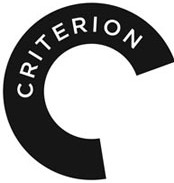The Criterion Collection, a continuing series of important classic and contemporary films presents Simon & Garfunkel: Songs of America.
 Directed by their friend Charles Grodin and airing almost two months before the release of Bridge Over Troubled Water, Paul Simon and Art Garfunkel’s 1969 television special Simon & Garfunkel: Songs of America previewed their landmark album and shows the two on stage, in the studio, and on a concert tour across a turbulent country. The documentary follows the duo in cinéma verité style while interspersing footage of the social movements that defined a nation growing more aware, more sophisticated, and more complex. The special’s initial sponsor infamously balked at footage of Cesar Chavez and the United Farm Workers, the Poor People’s March on Washington, and the recently slain Martin Luther King, Jr., President John F. Kennedy, and Senator Robert F. Kennedy. Though unpopular at the time, Songs of America has become an enduring portrait of an era and of Simon & Garfunkel as artists, with incisive commentary provided by iconic songs like “America,” “The Boxer,” “Scarborough Fair,” “Mrs. Robinson,” “The Sound of Silence,” “El Cóndor Pasa (If I Could),” and “Bridge Over Troubled Water.”
Directed by their friend Charles Grodin and airing almost two months before the release of Bridge Over Troubled Water, Paul Simon and Art Garfunkel’s 1969 television special Simon & Garfunkel: Songs of America previewed their landmark album and shows the two on stage, in the studio, and on a concert tour across a turbulent country. The documentary follows the duo in cinéma verité style while interspersing footage of the social movements that defined a nation growing more aware, more sophisticated, and more complex. The special’s initial sponsor infamously balked at footage of Cesar Chavez and the United Farm Workers, the Poor People’s March on Washington, and the recently slain Martin Luther King, Jr., President John F. Kennedy, and Senator Robert F. Kennedy. Though unpopular at the time, Songs of America has become an enduring portrait of an era and of Simon & Garfunkel as artists, with incisive commentary provided by iconic songs like “America,” “The Boxer,” “Scarborough Fair,” “Mrs. Robinson,” “The Sound of Silence,” “El Cóndor Pasa (If I Could),” and “Bridge Over Troubled Water.”
SPECIAL FEATURES:
- New high-definition digital restoration with uncompressed monaural soundtrack on the Blu-ray edition
- Robert Ryan’s 1969 introduction to the television special
- The Harmony Game, Jennifer Lebeau’s 2011 feature-length documentary on the making of Simon and Garfunkel’s Bridge Over Troubled Water album
- Remembering Chuck, new interviews with Simon and Garfunkel on their personal and professional friendship with Grodin
- Saturday Night Live sketch from 1977 featuring Charles Grodin, Paul Simon, and Art Garfunkel
- PLUS: A new essay by rock journalist Ben Fong-Torres

